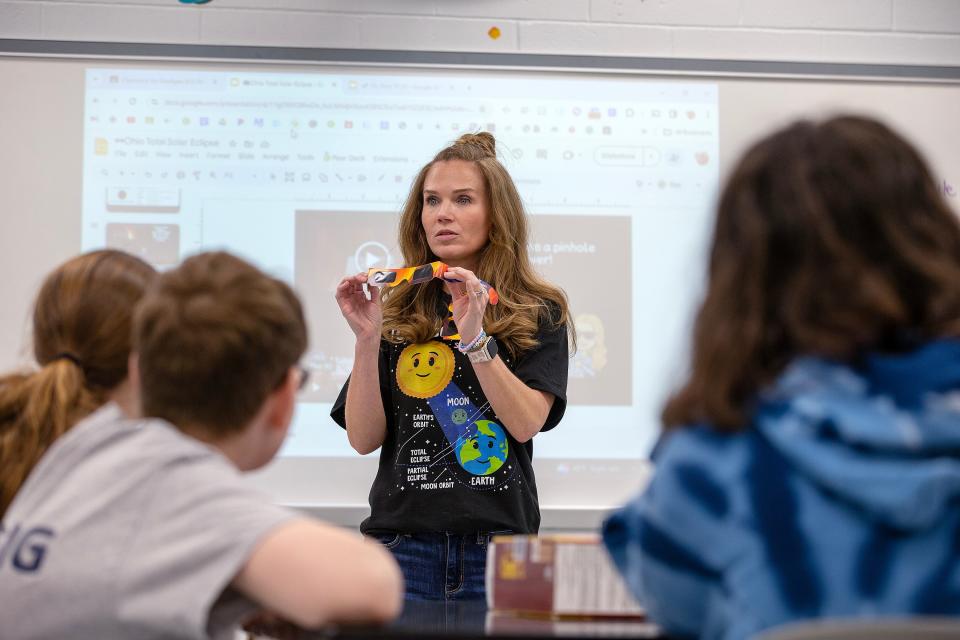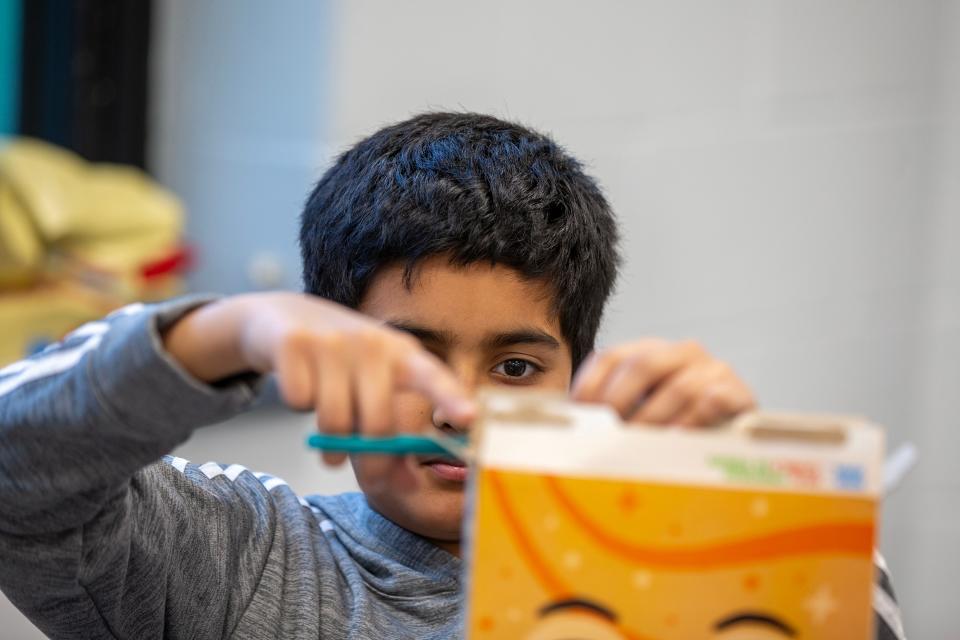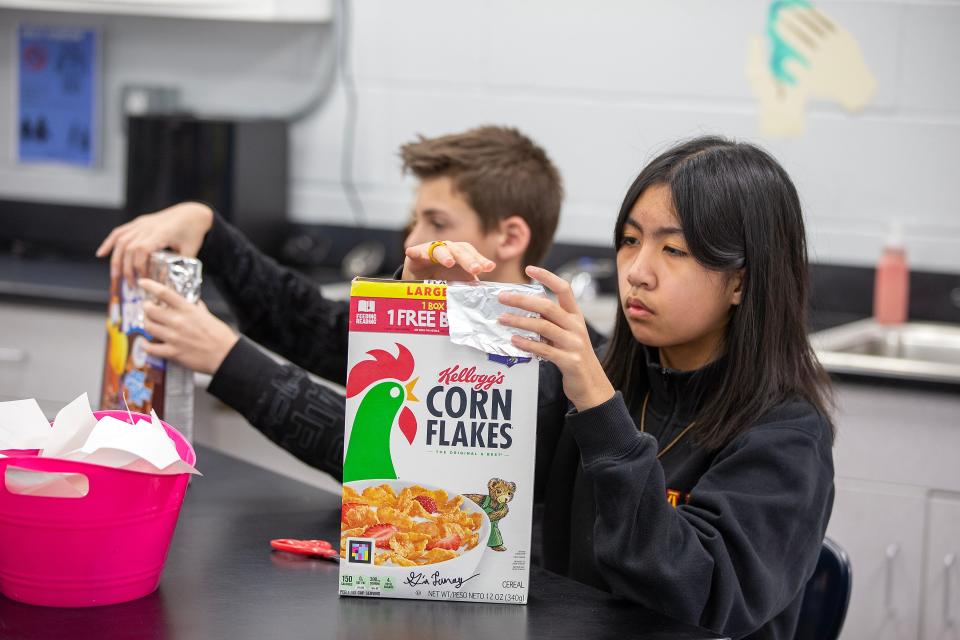Teachers prepare students ahead of solar eclipse, which science says benefits those who witness it
TOMS RIVER — Leigh Madigan's students taped tinfoil to cereal boxes on Thursday as they prepared for an event that will not happen again in this part of the world for another 20 years – a solar eclipse.
Her sixth-grade science students at Toms River Intermediate North cut eyeholes in the boxes while Madigan walked around the classroom and pierced the tin foil with a nail. On April 8, their first day back from spring break, the students will gaze into the darkness of these pinhole viewers, or pinhole projectors, and watch the shadow of the moon partially obscure the sun.
Madigan said students would receive special eclipse-viewing glasses that day.
Like Toms River schools, other districts across the Jersey Shore distributed special eclipse glasses to students or canceled after-school sports and activities on April 8 to discourage students from looking skyward with unprotected eyes.
Madigan started her lesson on Thursday by reminding students that staring at the sun without eclipse glasses – during an eclipse or otherwise – could damage the cones and rods in their eyes.

The eclipse offered an opportunity to teach a lesson that mixed astronomy and biology with other scientific fields the students had already learned: gravity, inertia and phases of the moon, Madigan said.
"I had to take a step back (from the set curriculum) and say, 'let's take a look at this event that we're not going to have very often," said Madigan. "We don't have one (another solar eclipse) in North America until 2044. So I said… 'We're going to do this and make sure that the kids get the experience, and (get it) safely."
Total solar eclipses can affect a broad range of animal behaviors, said Andrew Farnsworth of the Cornell Lab of Ornithology, who spoke with reporters this week during a virtual eclipse-focused event held by the American Association for the Advancement of Science, or AAAS.
The darkening sky and temperature drop of a total or near total eclipse can cause daytime birds to roost or birds that migrate at dusk to take flight, he said. Flying insects might land and nocturnal animals can experience a short burst of activity, he said.

Eclipses can also have profound impacts on humans, said Paul Piff, a professor of psychological science at the University of California, Berkeley. People who experience total eclipses tend to have a lasting feeling of awe that shapes them in the days afterward, he said.
Awe is "when you experience or perceive something that's so vast, so complicated, so powerful, that it makes you feel like you need to reconfigure, readjust or update your mental schema, your understanding of the world, to accommodate the experience," Piff said during the AAAS virtual eclipse event.
Solar eclipse in NJ: When is the best time to see the total eclipse? Here's what to know
Humans who experience powerful natural events that generate awe, like eclipses, tend to become temporarily less self-focused, more interested in connecting with others, and are more generous in the days after the experience, he said.
"That feeling that you get from experiencing something like that, even if it's not the full eclipse, is ineffable, it's long lasting. It has important individual benefits, and I think social benefits," Piff said. "It's one that you'll remember for a long time."

Madigan hopes her sixth graders not only learn the science behind the solar eclipse, but take advantage of the opportunity to view this rare event.
"They've learned about the movement of the Earth, the sun and the moon, and they're able to see how that interaction… impacts us here on Earth," she said. "We have these amazing astronomical events that don't occur so often and… (we teachers) want to make sure that they're taking advantage and appreciate… the world that we live in, and everything around it."
Amanda Oglesby is an Ocean County native who covers education and the environment. She has worked for the Press for more than 15 years. Reach her at @OglesbyAPP, aoglesby@gannettnj.com or 732-557-5701.
This article originally appeared on Asbury Park Press: Toms River students preparing to learn from eclipse

